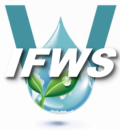Microalgae cultivation in wastewater and potential processing strategies using solvent and membrane separation technologies
Nurul Syahirah Mat Aron, Kuan Shiong Khoo, Kit Wayne Chew, Ashokkumar Veeramuthu, Jo-Shu Chang, Pau Loke Show*
* Department of Chemical and Environmental Engineering, Faculty of Science and Engineering, University of Nottingham Malaysia, Jalan Broga, Semenyih 43500, Selangor Darul Ehsan, Malaysia
https://doi.org/10.1016/j.jwpe.2020.101701
Highlights
- Microalgae are alternative source of energy, food and essential human needs.
- Cultivation and processing of valuable biomolecules from microalgae are expensive.
- Wastewater is an alternative medium for the cultivation of microalgae.
- PVDF and polysulfone membrane recovers the highest amount of biomolecule.
- Liquid biphasic flotation system is a promising biomolecule extraction technology.
Abstract
Microalgae has been utilised in various applications ranging from pharmaceuticals, cosmetics, supplements, liquid fuels as well as food source for human and animals. The upscaling of microalgae production to meet the demand for global consumption has yet to be realized as there are many factors to be considered in the upstream and downstream processing of microalgae biomass. For upstream processing, the high cultivation cost which poses a major setback can be reduced by cultivating the microalgae in wastewater sources, which are widely available and at the same time can lead to bioremediation of these waste sources. The contents of microalgae biomass from wastewater can also be used to produce the desired bioproducts. For downstream processing, the efficiency of traditional processes has long hindered the progression of microalgae to products, hence, the discovery of advanced technologies which can yield higher productivity and good quality products have been studied and upscale to a pilot scale to verify its feasibility. Separation techniques like liquid biphasic system and membrane separation are potential in achieving high yield and separation efficiency to recover valuable products from microalgae and these processes are environmentally friendly and cost-effective. The insights from cultivating microalgae in wastewater sources and the promising technologies to convert them into useful bioproducts will be beneficial to the developments of future upstream and downstream processes.

Keywords: Biomolecules extraction; Liquid biphasic flotation system; Membrane-based Technology; Microalgae; Wastewater
Original article link: https://www.sciencedirect.com/science/article/abs/pii/S2214714420305791https://www.sciencedirect.com/science/article/abs/pii/S2214714420305298Original article link
